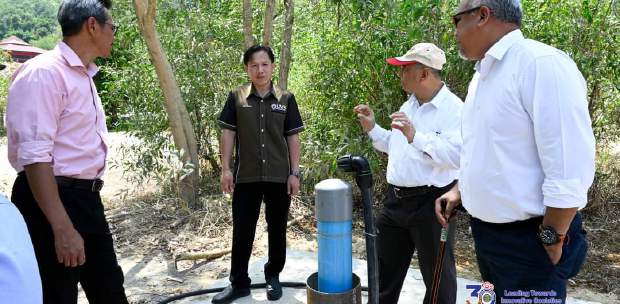IT is now common knowledge among those in higher education that challenging times lie ahead.
Managing higher education will not be easy in the coming years. Many admit it will be an uphill battle. For private universities, there are already signs of declining student numbers.
This is not sustainable.
Somehow, a growing number of students are exploring other options to equip themselves with the needed professional skills.
The traditional ways of university education are becoming less effective.
Public universities, on the other hand, are at a loss to cope with the sudden fairly drastic budget cuts. With little experience to generate alternative incomes, most take the easy way out. Already many have terminated the services of their lecturers.
Even the very experienced professors are not spared. Many fear the long-term impact of such measures can be damaging for the universities.
Undoubtedly, education is an important investment. Future leaders are developed through good education. These include leaders in government, industry, academia and the society at large.
There is plentiful evidence to show that wise investment in education would enhance the chance of making better headway in business, technology development and innovation.
And, in the education pathway, higher education is seen as the most critical stage. It provides the final touches as students prepare to take that plunge into industry.
It would be risky if the quality of graduates does not meet the demands of industry and society. This is the reason why the curriculum designed must take into account inputs from society and the business community.
Graduates nowadays are supposed to be trained not only to acquire the right skills, but also imbibed with the right mindset to contribute to society.
The big question before us now is, are our varsities catering to such demands? Views are mixed on such a question. There are those who believe that they are producing talents that meet the expectations of industry and are good research for the world. The impact factor of their research has also been soaring upwards, as maintained by the ministry.
But, there are those who disagree.
The industry frequently complains about the quality of our graduates not fully meeting their criteria of good talent. They say most are poor in their communication skills and other interpersonal attributes.
Apparently, graduates from the private universities fare better compared with their public university counterparts. And, on research, society complains they have not seen the fruits.
In a globalised world rife with competition, most people agree that innovation strength is a key factor ifanation is to rise above the competition. This is where universities can sow the seeds through their activities in research and development (R&D).
However, innovation can only be felt by society if the R&D findings are effectively shared with the public. Unfortunately, most of the R&D only aim for publications in tier one peer-reviewed journals.
That is the key performance indicators (KPIs) for the academics in the country. The sad part of it all is that such journals are limited in terms of readership.
Only those in the same discipline read them.
The findings do not effectively reach out to other readers which also matter such as the policymakers, the business people and society at large. A recent article titled, “Prof, no one is using your ideas” which was published in Singapore’s The Straits Times gave some clear illustration why the KPIs of varsity professors need to change. They need to reach out more to those outside their own narrow discipline. Especially, society at large.
It is clear society demands more from universities. Universities need to engage society more in order to regain their credibility as a source of talent and knowledge. And, the knowledge must not be just to fill the pages of some tier one journals.
Knowledge must be developed in the interest of society at large.
Only then will the public confidence in varsities return. With such confidence and trust will eventually come the support the universities desperately need to sustain themselves, including the financial support. Some universities are already contemplating reinventing themselves to cope with the emerging challenges.
The enterprise university concept has slowly gained traction in some varsities as the strategic way forward.
Dr Ahmad Ibrahim is a Fellow at Academy of Sciences Malaysia






